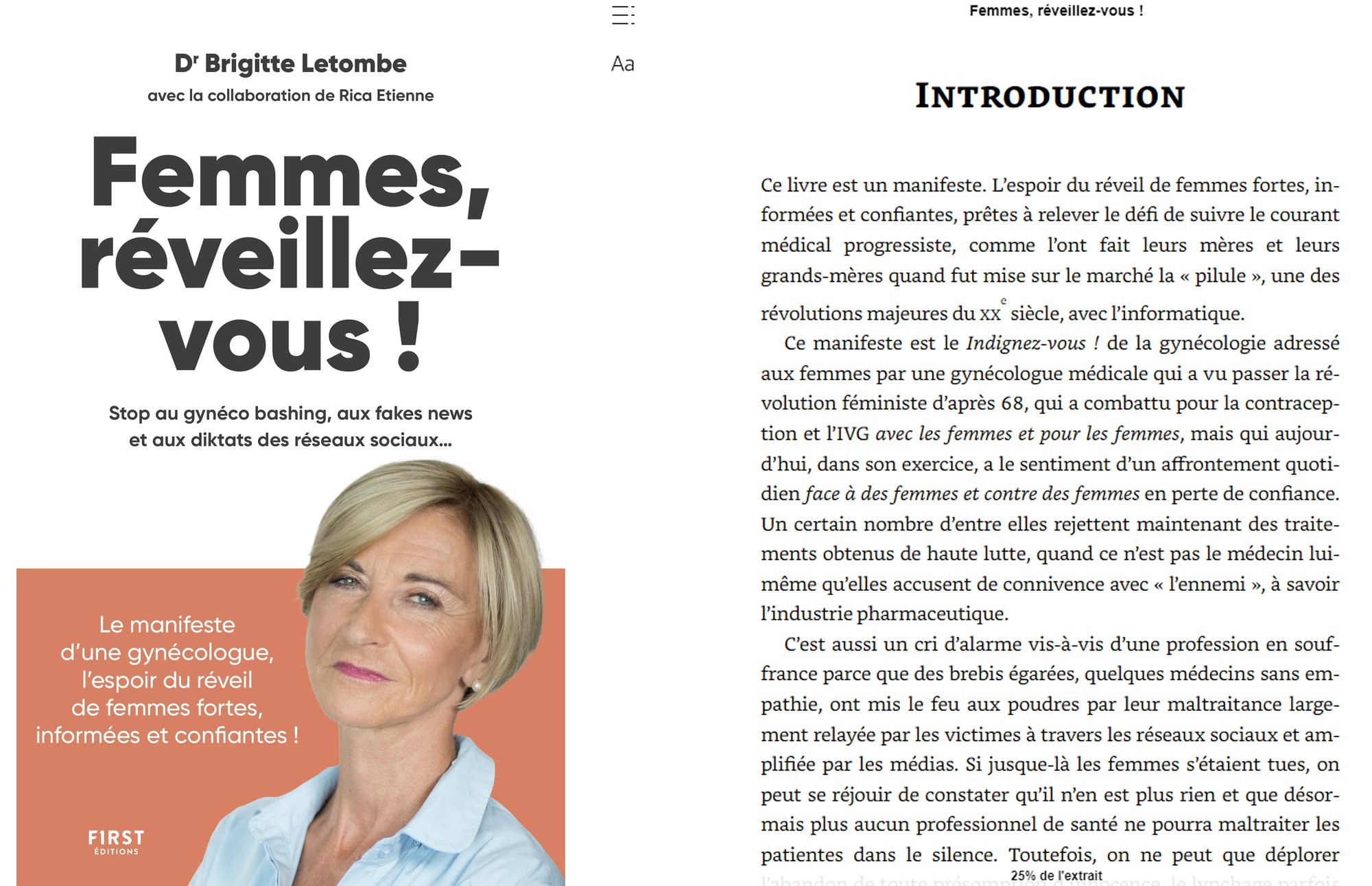Published on
Updated
Reading 2 mins.
in collaboration with
Dr Gérald Kierzek (Medical Director of Doctissimo)
Medical gynecologist for many years, Dr. Brigitte Letombe saw the feminist revolution after 1968 pass and fought for contraception and abortion with women and for women. She notices today during these consultations a loss of confidence of these women, for which she writes this book today: “Women, wake up! – Stop gynecology bashing, fake news and the diktas of social networks” at First editions.
Doctissimo: Why did you write this book?
Dr Brigitte Letombe : I wrote this book because I despair over the years to see how many women deprive themselves of a gynecological follow-up. This follow-up is however essential to accompany them throughout their life in the various gynecological stages which can cross and which can cause them problems. While we are their privileged interlocutors, let us remember.

Doctissimo: A study shows that 64% of women worldwide suffer from premenstrual syndrome. The authors of this work consider that this is a real public health problem. What can we do about this situation?
Dr Brigitte Letombe : This figure is not surprising. The purpose of my book is precisely to bring women back to individualized consultation. And this, to have a support that is not standard, as is often the case and this is what is generally offered to women, but rather tailor-made, in confidence and according to a family history and personal.
This is what allows a clear assessment of their symptomatology, to respond to the problems they encounter. As for the premenstrual syndrome precisely, which deserves a precise medical evaluation.
Dr Brigitte Letombe : This is the whole object and interest of my book. For my part, I think that this mistrust began for the entire medical profession with the various public health crises, such as that of “contaminated blood” or the Mediator, more recently. More specifically for women, this distrust of gynecology was born from the “Franco-French” crisis of the “pill” and more recently with the #metoo movement.
The current of VOG, obstetrical and gynecological violence, although coming from South America, has also been greatly aggravated by social networks. While in reality, if these behaviors are undeniably present, they are probably minor in number and the work of professionals lacking in tact and empathy.
Through this book, I wanted to take up all the false information and rumors circulating around women’s health, to provide reliable scientific information to all those who read it. I hope to be able to restore women’s confidence as well. That they can regain confidence in their gynecologist, whom they will return to consult at least once a year, to have the answers to the questions that they can legitimately ask themselves about their health.
